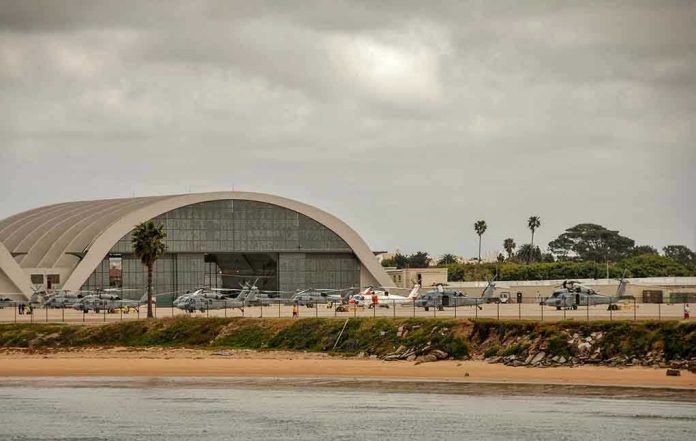
President Trump’s bold declaration that America is “trying” to reclaim Afghanistan’s strategic Bagram Air Base signals a dramatic reversal of the Biden administration’s disastrous retreat, potentially restoring American strength where weakness once prevailed.
Story Highlights
- Trump announces US efforts to regain control of Bagram Air Base from Taliban forces
- Strategic facility was abandoned during Biden’s chaotic 2021 Afghanistan withdrawal
- Base holds critical importance for countering China’s growing regional influence
- Taliban currently controls the airfield amid ongoing resistance attacks
Trump’s Strategic Vision for Bagram
During his state visit to the United Kingdom, President Trump declared America’s intention to reclaim Bagram Airfield, the sprawling military installation that served as the backbone of US operations in Afghanistan for two decades. Trump’s statement represents the first major policy shift regarding Afghanistan since taking office, directly confronting the consequences of the previous administration’s hasty withdrawal. The base’s strategic location north of Kabul makes it invaluable for projecting American power and monitoring regional threats, particularly China’s expanding influence in Central Asia.
Biden’s Costly Abandonment Legacy
The July 2021 handover of Bagram to Afghan forces marked a pivotal moment in America’s retreat from global leadership under Biden’s watch. Within weeks, Taliban forces seized the facility after Afghan troops fled, leaving behind billions in military equipment and infrastructure. The base, originally built by the Soviet Union in the 1950s and secured by American forces in 2001, had served as the largest US military installation in Afghanistan. This strategic asset’s loss represents more than tactical failure—it symbolizes the broader consequences of abandoning American commitments overseas.
Current Taliban Control and Resistance
Taliban forces currently maintain control over Bagram despite facing periodic attacks from the Afghan National Resistance Front, which killed several Taliban officials at the base in March 2024. The terrorist organization celebrated three years of control in August 2024, turning the former American stronghold into a propaganda victory. However, ongoing resistance activities demonstrate the fragility of Taliban authority and create potential opportunities for American re-engagement. The instability surrounding the base underscores the broader security vacuum created by Biden’s withdrawal strategy.
Trump’s initiative to reclaim Bagram reflects his America First approach to foreign policy, prioritizing strategic assets that serve genuine national security interests. Unlike the nation-building exercises that characterized previous administrations, retaking Bagram would focus on counterterrorism capabilities and countering Chinese expansion rather than costly occupation efforts. The base’s airfield and infrastructure remain largely intact, making it an attractive target for restoring American presence without extensive reconstruction costs.
Strategic Implications for Conservative Values
Reclaiming Bagram aligns with core conservative principles of peace through strength and protecting American interests abroad. The base would provide crucial intelligence-gathering capabilities and rapid response options against terrorist threats, addressing legitimate national security concerns without the massive troop deployments that characterized the Afghan conflict. Trump’s approach represents a measured response to the security challenges created by Biden’s withdrawal, potentially preventing Afghanistan from again becoming a launching pad for attacks against American citizens and interests.
The path forward requires careful consideration of operational costs and strategic benefits, ensuring any military action serves clear American interests rather than open-ended commitments. Trump’s statement signals renewed American resolve while learning from past mistakes, focusing on specific objectives rather than vague nation-building goals that drain resources and sacrifice American lives unnecessarily.
Sources:
Bagram Airfield Timeline of Events Since 2001
US War in Afghanistan Timeline
Afghanistan Security Council Report Chronology









